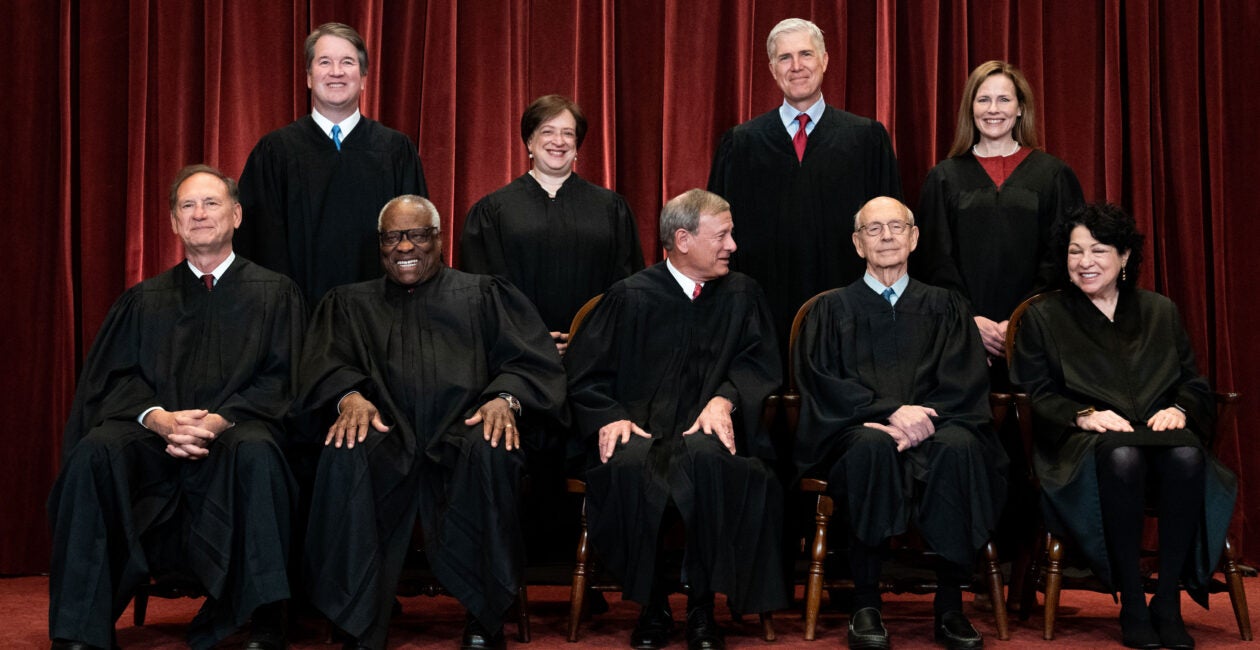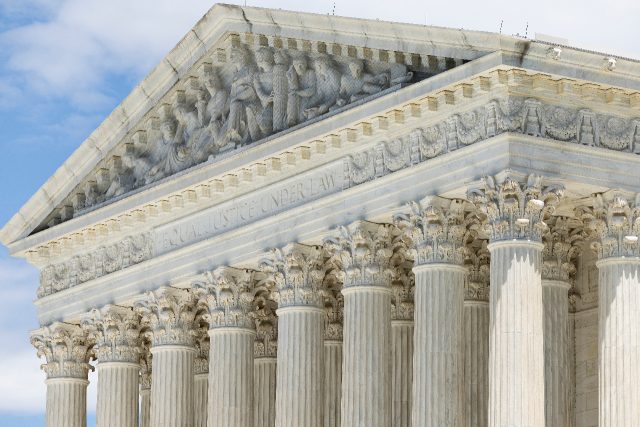 |
| Photo: Erin Schaff/Getty Images |
“The state will take your money, but won’t allow you to use it as you know best,” Amy Carson said, in a stinging rebuke of her home state of Maine last year when legal scholars from the Institute for Justice and First Liberty Institute appealed her case to the U.S. Supreme Court.
In a child’s education, parents know best—and now the U.S. Supreme Court agrees.
On Tuesday, in Carson v. Makin, the high court ruled 6-3, in an opinion written by Chief Justice John Roberts, that the state of Maine could not prevent David and Amy Carson, Troy and Angela Nelson, and other similarly situated families from using otherwise generally available tuition assistance benefits at religious (or “sectarian”) schools simply because those schools provided religious instruction.
The Carsons and Nelsons had challenged Maine’s decision to discriminate against religious schools as part of the state’s system of providing tuition assistance to families who lived in areas not served by a public school.
Maine does not operate assigned public schools in every town, particularly in rural far northern Maine, but students must still attend K-12 schools.
Because of that, state officials have allowed families and children to choose private schools outside of their local area using tuition assistance from the state. For many years, religious private schools were included among those educational options for families.
But in 1981, the state enacted a new requirement: Any school receiving tuition assistance payments must be “nonsectarian,” having no “religious practice” involved. A school could be named after a patron saint of the Catholic Church, for example, but teachers could not celebrate those ideas or even add value-laden concepts into the school curriculum.
Students in Jewish day schools, evangelical Christian schools, and other religious schools were affected, too. --->READ MORE HERE
 |
| AFP |
The US Supreme Court ruled on Tuesday that public funds can be used to support families sending their children to religious schools, in a case that challenged longstanding principles of separation of church and state.
The case was brought by two evangelical Christian families in the northeastern state of Maine who sued to be able to use state-provided education subsidy funds to send their kids to schools with religion as the basis of their teachings.
In a 6-3 ruling, the court said religious schools cannot be excluded from the tuition assistance program.
“There is nothing neutral about Maine’s program,” Chief Justice John Roberts wrote in an opinion joined by the other five conservative justices.
“The State pays tuition for certain students at private schools — so long as the schools are not religious. That is discrimination against religion,” Roberts said.
As Maine is sparsely populated, more than half of its school districts have no publicly funded high schools.
So families receive subsidies that allow them to send their children to schools of their choice, including privately-run schools.
But schools where religious beliefs are at the core of instruction are not covered in the aid program, because, under the regulations for the program — and those similar in other states — the teaching is “sectarian.” --->READ MORE HEREFollow links below to relevant.related stories:
+++++Supreme Court Strikes Down Maine’s Unconstitutional Tuition Program For Excluding Faith-Based Schools+++++
LePage Praises SCOTUS Decision on Religious School Tuition: ‘Educational Bureaucrats’ Should Not Decide Child’s Future
Supreme Court: Religious schools must get Maine tuition aid
If you like what you see, please "Like" and/or Follow us on FACEBOOK here, GETTR here, and TWITTER here.

No comments:
Post a Comment